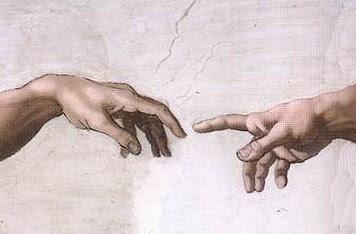
Yesterday, following controversy, Princeton Theological Seminary Seminary reversed a decision to give its Kuyper Prize for Excellence in Reformed Theology and Public Witness to Rev. Tim Keller of Redeemer Presbyterian church in Manhattan. Keller has been vocal in opposing the ordination of women and openly LGBT people by the Presbyterian Church USA. He belongs to a conservative wing of that church, the Presbyterian Church in America, which is largely identified with and known for its opposition to full inclusion of women and LGBTQ people in Presbyterian churches. He also promotes the ideology of female subordination to males, using a theology of "complementarism" to justify this stance.
At Religion News Service today, Jonathan Merritt expresses outrage at Princeton's decision. Merritt argues that "some on both sides" of the gender-sexual orientation discussion disagree with each other. Let's pull together in a spirit of mutual goodwill, he proposes.
I read Merritt's proposal, and I immediately think back to the 1950s and 1960s, when I heard that very same proposal made over and over again in the white evangelical Christian communities in which I came of age in the American South during the Civil Rights struggle. As I grew up, I heard that "both sides have a point" argument advanced repeatedly in response to the movement to extend rights to African Americans. I was told constantly by fellow white evangelicals that "both sides" needed to come together and sit down at the table together in a spirit of goodwill — though one side's avowed intent as it asked to sit at the table was to block the human rights of the other side forever, while claiming a biblical basis for its cruelty.
In the period of the Civil Rights struggle, our American culture eventually decided that one side was right and other was wrong, that our culture was at a fork in the road vis-a-vis the rights of people of color, and had to choose one fork rather than another — no matter how many people on the other side said "God," "bible," "religious freedom to discriminate," etc.
Given my formative experience and my recollection of this history, about which Merritt and others can easily find abundant information, I have to ask, What's different about the issue of gender and sexual orientation? What makes people like Jonathan Merritt or Jacob Lupfer or countless other young American religion writers with no living memory of the Civil Rights period so certain that, while discrimination against people of color cannot be justified on credible religious grounds, there's a credible religious case for discriminating against women and people of color?
To my ears as someone who grew up in the white evangelical South in the period of the Civil Rights struggle, the theological arguments being advanced by "bible-believing" Christians today to oppose women's and LGBTQ rights sound very much like the ones I heard a half century ago from these very same sectors in opposition to the rights of people of color. It's apparent to me that my witness does not count at all for many young religion scholars and journalists — but I'm not the only one pointing to these parallels. Smarter folks than I am are doing so as well. The testimony of smart folks who know the evangelical world in the U.S. inside out, people like Fred Clark and Randall Balmer, is equally being cavalierly dismissed as people like Lupfer and Merritt claim that current movements to base opposition to women's and LGBTQ rights in the bible have theological legitimacy, while the previous movement to do the very same thing with regard to rights of people of color is theologically illegitimate.
The real question that needs to be asked here, of course — but is never asked within many American church communities (and as a result we have Mr. Trump and not Mrs. Clinton as our president): Who died and made white males, especially straight* ones, little gods? If God is male, then male is God, the profoundly important theologian Mary Daly pointed out to us in the last century.
But who ever made made that equation of the male (especially the straight male) and God a defensible, legitimate, justifiable reading of scripture? How did that equation get made and why is it still legitimate when the equation of God with white skin and white superiority has been, at a formal level at least, smashed?
Surely we need to talk about the illegitimacy of this "scripture-based" belief every bit as much as we once needed to talk about the illegitimacy of the "scripture-based" belief in white supremacy and the "scripture-based" belief that slavery is part of God's plan for the world — ideas taken for granted in our culture just as long as it has been taken for granted that the male is god because God is male.
*Merritt is gay.
The detail from Michelangelo's depiction of the creation of Adam on the ceiling of the Sistine Chapel in the Vatican is in the public domain, and available for sharing at Wikimedia Commons.

